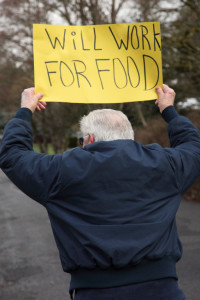 I hear from a lot of people who think they’re doing the right things with their money—little realizing that they’re impoverishing their future selves. Three behaviors you’re most likely to regret later:
I hear from a lot of people who think they’re doing the right things with their money—little realizing that they’re impoverishing their future selves. Three behaviors you’re most likely to regret later:
Putting off saving for retirement. Some people spend every dime they make, while others delay saving while they pursue other goals that seem more worthy, like saving for a home or paying off debt. The reality is that retirement savings opportunities are “use it or lose it”—you can’t get back the company matches, tax breaks or (most important) the power of compounding if you don’t get those contributions into your account. Compounding is so powerful, in fact, that it gets harder and harder to catch up the older you get…until it gets impossible. The smarter solution: Start saving for retirement from your first job, and don’t stop.
Cashing out your retirement when you leave a job. The next most widespread and destructive behavior is tapping into what you do manage to save. About 42% of those who lost their jobs in 2010 cashed out their retirement plans, which is about the same percentage as before the recession, according to an Aon report. More than half of those in their 20s cashed out. Not only do you incur taxes and penalties that eat up 25% or more of your withdrawal, but you lose all the future tax-deferred compounding on that money—which means those in their 20s are hurt even more by cash-outs than those who do it later. (Figure every $1,000 you withdraw in your 20s will cost you $20,000 or more in lost future retirement income.) The smarter solution: Leave your retirement money for retirement. If you can’t or don’t want to leave your balance when you leave your job, roll it into your new employer’s plan or into an IRA.
Grabbing your Social Security benefit early. Social Security will be a big part of most people’s retirements, but too few people understand how much they’re hurting themselves—or their loved ones—when they apply early and lock in a permanently reduced check. It’s not just that you’re likely to live past the “breakeven point” when, mathematically, waiting until full retirement age pays off in terms of total benefits. More importantly, you may be cutting yourself off from strategies that would maximize your lifetime benefits and leaving your surviving spouse with a bigger check. Take a minute to read AARP’s excellent primer on the subject, “How to Maximize Your Social Security Benefits,” and use the free calculator at T. Rowe Price to help you understand the impact of different strategies. (If you want more freedom to customize a tool, www.maximizemysocialsecurity.com gives you that for $40.) The smarter solution: View Social Security as a kind of longevity insurance that helps protect you against the possibility of outliving your savings.
I don’t understand the scenario around starting Social Security benefits at 62. Are these people retired or are they working and claiming benefits? I will turn 62 shortly, but I am still working full time and have no intention of filing for benefits. If I should lose my job, the situation will be completely different. The likelihood of my finding a good job for the four years that remain until I reach full retirement age is not good. What am I supposed to do? Try to get by so that I can get the full monthly benefit? It strikes me that it would be better to acknowledge the fact that I would then be retired and might need to file for benefits. As long as I have a good job, I won’t file.
Sometimes people have little choice but to claim benefits early, but voluntarily bailing out of the workforce in your early 60s can have serious financial consequences. Working even a year or two longer can dramatically improve the odds of not running out of money.
I concur, cashing out retirement savings every time you leave a job is destructive. I have done it once and wish I hadn’t done it. Set me back a long way back. To mitigate the temptation I have shored up my emergency fund to tide me in such cases where I leave or lose a job and ensures that retirement money stays in the retirement fund!